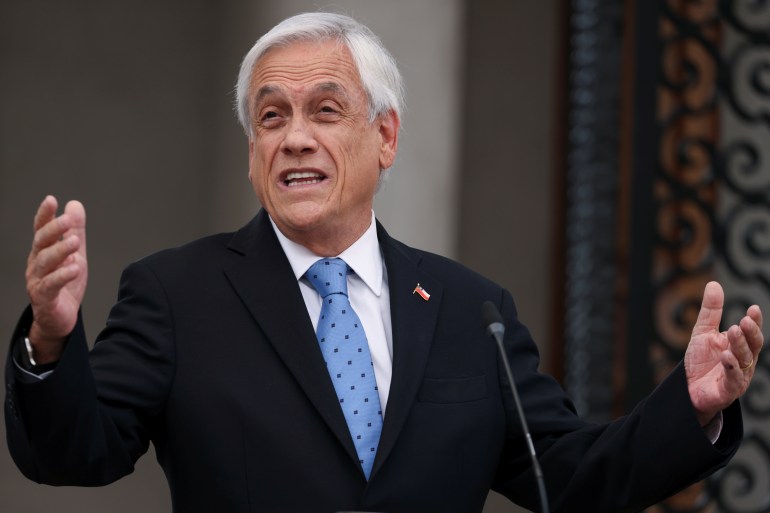Issued on: 13/10/2021 -

Los Angeles (AFP)
Hollywood film set crews will launch their biggest strike since the 1940s next week unless studios meet their demands for better working conditions, their largest union said Wednesday in a move that could bring the multi-billion dollar industry to a halt.
The International Alliance of Theatrical Stage Employees (IATSE), which represents 60,000 film and TV workers from camera operators to set builders and costume designers, has been in months of talks with the top industry organization representing the likes of Disney, Warner and Netflix.
IATSE says that despite months of negotiations, Hollywood studios have ignored their demands for shorter working hours, longer breaks between shifts, and improved pay for the lowest earners.
"Without an end date, we could keep talking forever. Our members deserve to have their basic needs addressed now," said IATSE head Matthew Loeb, setting a deadline of Monday.
The studios' "pace of bargaining doesn't reflect any sense of urgency," he added.

With film and TV production attempting to ramp up again after enforced Covid shutdowns, IATSE wants stiffer penalties for productions that force members to work through lunch breaks.
It has also criticized Hollywood's failure to update the often lower salaries for crew members working on projects for streaming platforms, which today have budgets comparable to traditional Hollywood blockbusters.
The Alliance of Motion Picture and Television Producers representing major studios and TV networks did not immediately respond to AFP's request for comment Wednesday.
It has recently told US media it has made concessions on wages, pension and health care to IATSE.
The last major Hollywood walkout to wreak havoc on production schedules was the writers' strike in 2007 and 2008.
The so-called "below-the-line" technical workers involved in the current dispute have not laid down their cameras, makeup brushes and props since 1945.
That event, known as "Hollywood's Bloody Friday," saw violent clashes outside the Warner Bros studio near Los Angeles.
IATSE members voted by a huge margin last week to support a strike if the talks are not successful, bringing the long-running dispute to a boil.
© 2021 AFP
A Hollywood union president said its 60,000 workers will strike on Monday without a deal for improved working conditions
- IATSE said more than 60,000 entertainment workers will strike next week if negotiations aren’t final.
- Negotiations between crew members and studios have been at an impasse for several months.
- A strike could halt a range of TV and film projects – disrupting an industry already impacted by COVID.
The ongoing battle between Hollywood workers and the major studios is at a boiling point, and it may be about to spill over on the entire entertainment industry next week.
More than 60,000 film and television workers in the International Alliance of Theatrical Stage Employees (IATSE), a crew members’ union in Hollywood, are on the brink of an industrywide strike. IATSE President Matthew Loeb tweeted on Wednesday that he intends to formally initiate a strike on Monday unless an agreement is reached between IATSE and the Alliance of Motion Picture and Television Producers (AMPTP).
“We will continue bargaining with the producers this week in the hopes of reaching an agreement that addresses core issues, such as reasonable rest periods, meal breaks, and a living wage for those on the bottom of the wage scale,” Loeb said in the tweet.
“However, the current pace of bargaining doesn’t reflect any sense of urgency. Without an end date, we could keep talking forever. IATSE film and TV workers deserve to have their basic needs addressed NOW,” Loeb continued.
Union members have pushed for improved working conditions, like longer rest breaks and wage increases for lower-paid crafts. Many personal accounts from union members’ difficult working experiences have been pouring out on social media, reining in support from other major entertainment unions including SAG-AFTRA, the Directors Guild of America, and the Writers Guild of America, as well as notable figures in the industry.
Earlier this month, IATSE members voted to authorize a strike, with over 98% of members voting in favor for a strike. The union and producers resumed bargaining negotiations on Wednesday, according to Deadline, marking eight days since the strike authorization. The unions have been locked in multiple negotiations since July, but parties have repeatedly failed to reach a consensus on a deal.
“Despite our best efforts at the table, the pace of negotiations does not reflect the urgency of the situation,” Cathy Repola, national executive director of the Editors Guild, IATSE Local 700, said in a message to her members on Tuesday. “In the wake of the overwhelming strike authorization vote, the employers repeatedly refuse to do what it will take to achieve a fair deal. Either they don’t recognize what has changed in our industry and among our members or they don’t care. Or both.”
The strike is expected to have major implications on the entertainment industry, creating a labor shortage that could affect everything from live television shows to streaming hits to feature films. Studios are still recovering from the COVID-19 pandemic, which continues to disrupt production schedules and theatrical releases.
If the action goes forward on Monday, it will be only the second crew member strike in Hollywood history.
IATSE Sets Strike Date, Which Could Shut Down Film And TV Production Nationwide
Hollywood may soon come to a grinding halt if two major organizations cannot reach an agreement. The International Alliance of Theatrical Stage Employees (IATSE) has officially set a strike date, meaning that if an agreement isn't settled on with the Alliance of Motion Picture and Television Producers (AMPTP) soon, movie and TV production may all but stop entirely in the U.S. This is, to say the very least of it, a huge deal for the industry.
As reported by Variety, Matthew Loeb, president of IATSE, said 60,000 union members will begin a strike on October 18 at 12:01 a.m. if an agreement with the AMPTP is not met. Currently, members of the union are demanding better working conditions, and the battle has been going on for weeks, with things heating up recently when the group widely voted in favor of a possible strike. The situation is complicated, and those interested in learning more about the ins and outs would do well to click this link. The main point is, if these two huge Hollywood groups can't come to terms — and soon — the movie/TV business is effectively going to be shut down. Loeb said the following:
"The pace of bargaining doesn't reflect any sense of urgency. Without an end date, we could keep talking forever. Our members deserve to have their basic needs addressed now."
What an IATSE Strike Would Mean
This all ties into what was once called new media, namely streaming services, and working conditions that were considered acceptable before those companies became the dominant force in Hollywood. The union is asking for better pay, better hours, and safer working conditions. Specifically, they want a 10-hour turnaround between shifts for all workers, in addition to a 54-hour turnaround on weekends. They are also requesting an increased meal penalty, which is a way to try and get productions to actually stop for lunch.
Negotiations with AMPTP, a major group representing the largest film and TV producers in the country, have been ongoing. However, as evidenced by Loeb's comments, the urgency is not there. If a deal can't be reached in the next handful of days, we could be seeing the biggest strike in Hollywood since the writer's strike in 2008, though this has the potential to be more wide-reaching, as the IATSE is a whole lot more than just writers













 Demonstrators face off riot police during a protest march by Mapuche Indian activists against Columbus Day in downtown Santiago, Chile October 10, 2021.
Demonstrators face off riot police during a protest march by Mapuche Indian activists against Columbus Day in downtown Santiago, Chile October 10, 2021. 